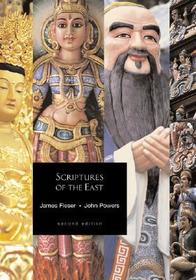
Scriptures of the East with Free World Religions PowerWeb
-
10% KEDVEZMÉNY?
- A kedvezmény csak az 'Értesítés a kedvenc témákról' hírlevelünk címzettjeinek rendeléseire érvényes.
- Kiadói listaár GBP 30.99
-
15 293 Ft (14 565 Ft + 5% áfa)
Az ár azért becsült, mert a rendelés pillanatában nem lehet pontosan tudni, hogy a beérkezéskor milyen lesz a forint árfolyama az adott termék eredeti devizájához képest. Ha a forint romlana, kissé többet, ha javulna, kissé kevesebbet kell majd fizetnie.
- Kedvezmény(ek) 10% (cc. 1 529 Ft off)
- Kedvezményes ár 13 764 Ft (13 109 Ft + 5% áfa)
Iratkozzon fel most és részesüljön kedvezőbb árainkból!
Feliratkozom
15 293 Ft

Beszerezhetőség
A kiadónál véglegesen elfogyott, nem rendelhető. Érdemes újra keresni a címmel, hátha van újabb kiadás.
Why don't you give exact delivery time?
A beszerzés időigényét az eddigi tapasztalatokra alapozva adjuk meg. Azért becsült, mert a terméket külföldről hozzuk be, így a kiadó kiszolgálásának pillanatnyi gyorsaságától is függ. A megadottnál gyorsabb és lassabb szállítás is elképzelhető, de mindent megteszünk, hogy Ön a lehető leghamarabb jusson hozzá a termékhez.
A termék adatai:
- Kiadás sorszáma 2
- Kiadó McGraw-Hill
- Megjelenés dátuma 2003. szeptember 1.
- ISBN 9780072978971
- Kötéstípus Puhakötés
- Terjedelem oldal
- Méret 287x200x20 mm
- Súly 680 g
- Nyelv angol 0
Kategóriák
Hosszú leírás:
This anthology of scriptures offers selections that vary in length from a few paragraphs to 10 pages, accompanied by brief introductions that discuss the nature and scope of scripture within each religion as well as the history of each scripture presented. Scriptures of The East contains sacred writings of Hinduism, Jainism, Buddhism, Sikhism, Confucianism, Taoism, Shinto, and indigenous religions of the East; a companion text, Scriptures of The West, contains sacred writings of Zoroastrianism, Judaism, Christianity, Islam, the Baha'i faith, and indigenous religions of the West.
Több



